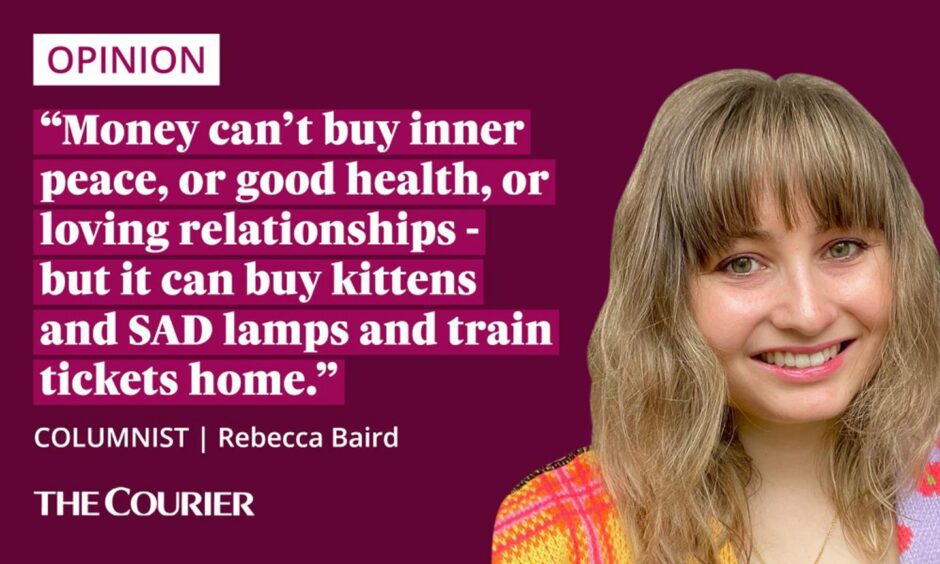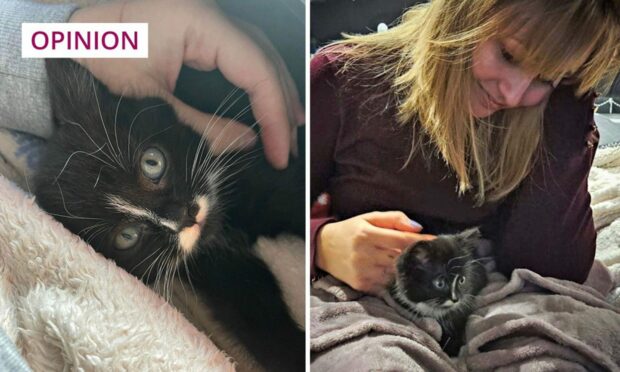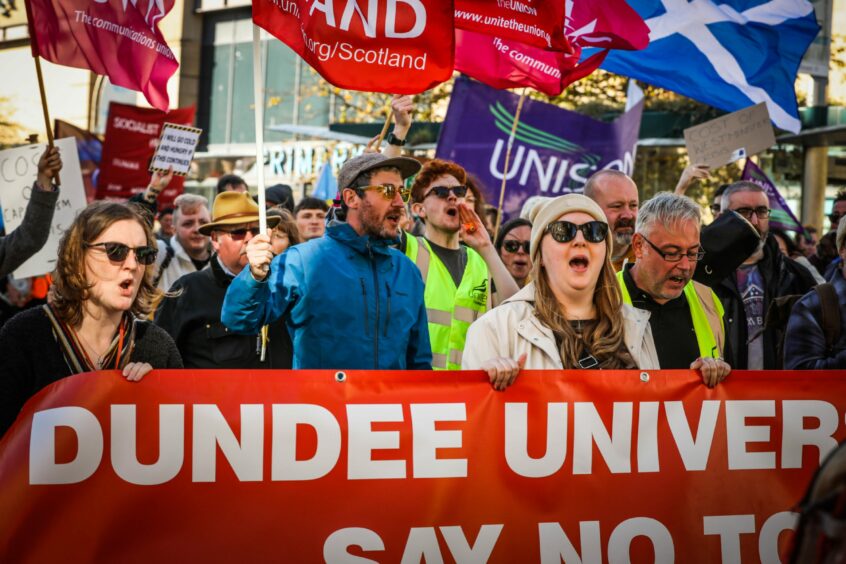I’d be so good at being a rich person.
I’ve never been one, but I have a great love of stuff. Too many cushions, trinkets in tiny boxes, a wee new pair of earrings just because, gizmos and thingies everywhere.
Whatever the opposite of minimalism is, that’s my aspirational aesthetic.
And I enjoy luxury.
Not in the slightly embarrassed, overly grateful way that so many working class Scots do; in my rare experiences of birthday spa days or top-shelf treats, I’ve taken to expensive tastes like a duck to water.
I’m not a snob – I’ll drink cheap wine out of coffee cups any day of the week – but somehow I think if every biscuit I ate was one of those Borders ones, and everything I drank came in a delicate crystal flute, I’d have perpetually better posture and, somehow, nicer hair.
The problem I’d have with being a rich person is that… well, then I’d be one of them.

And aside from the objectively evil consequences of massed wealth in our increasingly impoverished nation, being a person who openly seeks money just seems a bit… undignified.
Now, as Dundee’s most vulnerable face a winter of financial security plummeting along with the mercury, I wonder why.
Happiness doesn’t grow on trees
Growing up, I always heard “money can’t buy happiness” – and in a sense, that’s true.
As much as they provide a temporary sense of delight, new earrings and Borders lemon melts are obviously not the source of lasting, genuine contentment.
And for all I wax lyrical about velvet and crystal, I know my own ‘riches’ are much humbler.
I also know that even these still cost money.
Two weeks ago, I adopted a kitten, and she’s lit up my entire life.
A cat person without a cat is a sad thing indeed, and each time she curls up in my lap while I work, I get a big yellow ball of ‘yay!’ in my chest.
This is happiness. And it wasn’t always available to me.
Up until this year, I didn’t own my own home, and the places I rented didn’t allow pets. So this happiness doesn’t just cost an adoption fee and pet insurance – it costs a mortgage.
As I type this, I’m bathed in the bright white glow of a daylight therapy lamp.
Normally by mid-November, I’m feeling pretty low – the dark days affect me badly, and I struggle with seasonal depression.
This year, I’m doing OK mentally; whether it’s due to the lamp, or its placebo effect, I don’t know. What I do know is that when the lamp is on, I feel better – and I’m lucky to have had the £30 (and the electricity) to buy and use it.
Tonight, I’m going to visit my parents. I’ll get the train, and in two weeks, I might do that again. It’s not a big expense to me, but if I had no money for travel, it wouldn’t be possible for me to spend time with the people who mean the most to me.
These are the things that are essential for my personal happiness. And they’re all facilitated by money. So yes, I need money to be happy. There, I said it.
When did wanting cash become taboo?
Somewhere along the way, though, that ‘money doesn’t buy happiness’ messaging got scrambled, and turned the candid pursuit of cash into something tacky.
And now, in a similar way that wanting food – which we need to live – was turned into a source of shame by the beauty industry, wanting money – which we also need to live – has been turned into a sign of moral shortcoming.
If you want it because you truly don’t have enough to live, that means you’re somehow lacking, irresponsible, or a burden.
And if you do somehow have enough and want more, you’re shallow, materialistic and filling a void in your pitiful soul.
As we approach Christmas, and Black Friday mass-consumerism mania begins, this messaging gets 10x stronger.
But we ought to ask ourselves: Who benefits from working class people telling one another they shouldn’t need money to be happy?
Who benefits from cheap happiness?
Who is advantaged by people feeling ashamed of asking for a pay rise at work, or being embarrassed to admit they’re struggling to pay their bills?
Or even, Rishi forbid, just wanting to be able to go on holiday, or buy their kid a PlayStation?
Those who take money from the many to line the pockets of the few.
And certainly not ordinary working people.
Because even those ‘true’ happiness markers we’ll see sprinkled over Christmas ads this holiday season – time spent with loved ones, walks in nature, a hearty homecooked meal, a roaring fire – require money.
No one wants to sit with their family in a freezing cold house. Winter walks are no fun without a sturdy pair of boots.
You can’t enjoy a Christmas dinner when it’s a year-round struggle to put food on the table.
It’s true that money can’t buy inner peace, or good health, or loving relationships – but it can buy kittens and SAD lamps and train tickets home.
So this Christmas season, I think we should all stop telling ourselves we don’t need money to be happy in this capitalist hellscape.
Because without it, I know I’d be pretty sad.















Conversation